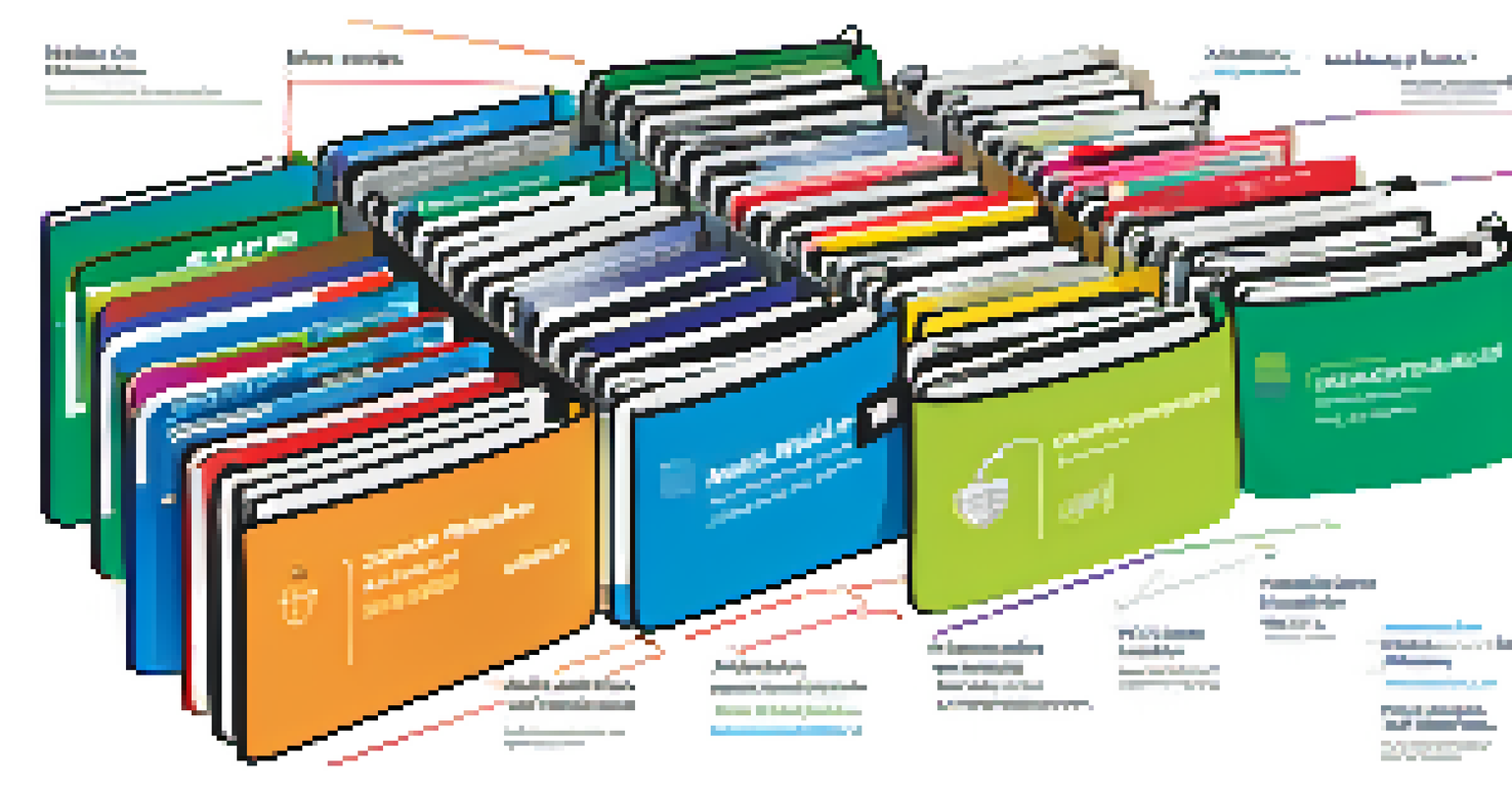The Role of Multi-Signature Wallets in Crypto Custody

What Are Multi-Signature Wallets?
Multi-signature wallets, often called multi-sig wallets, are a type of cryptocurrency wallet that requires more than one private key to authorize a transaction. This means that instead of relying on a single key to access funds, multiple keys are required, enhancing security. Think of it like needing multiple keys to open a safe; if one key is lost or compromised, your assets remain protected by the others.
Security is not a product, but a process.
These wallets are particularly useful for organizations or groups that manage shared funds. By requiring consensus among several parties, the risk of unauthorized access is significantly reduced. This collaborative approach mirrors how many businesses operate, where decisions require input from multiple stakeholders to ensure safety and accountability.
In the world of cryptocurrency, where security breaches are a concern, multi-signature wallets offer a robust solution. They help mitigate risks associated with single points of failure, making them an attractive option for both individual users and larger enterprises.
How Multi-Signature Wallets Work
At their core, multi-signature wallets use a simple principle: multiple keys are needed to unlock funds. When setting up a multi-sig wallet, you can define how many signatures are required to execute a transaction. For example, in a 2-of-3 wallet, any two of the three designated keys must be used to authorize a transaction, providing flexibility and security.

This system is often managed through smart contracts on a blockchain, which automate the process of verifying signatures. Once the required number of signatures is collected, the transaction is processed, ensuring that no single individual can move funds without others' consent. This decentralized approach fosters trust within groups, as all members have to collaborate before any action is taken.
Multi-Sig Wallets Enhance Security
Multi-signature wallets require multiple private keys to authorize transactions, significantly reducing the risk of unauthorized access.
Moreover, multi-sig wallets can be customized to fit the needs of their users. For instance, a company might require that one executive and a security officer both approve transactions over a certain amount, which helps maintain internal controls while preventing fraud.
Benefits of Using Multi-Signature Wallets
One of the primary benefits of multi-signature wallets is enhanced security. By distributing control among multiple keys, you greatly reduce the risk of theft or loss of funds. If one key is compromised, the attacker cannot access the wallet without the additional required keys, thus protecting the assets held within.
In a world full of change, the security of our assets must evolve just as quickly.
Additionally, these wallets promote transparency and accountability. When several people must approve transactions, it encourages better financial practices and reduces the likelihood of mismanagement. This is particularly advantageous for businesses, where financial oversight is crucial for maintaining trust with stakeholders.
Finally, multi-signature wallets cater to varying needs. Whether for personal use or corporate governance, they adapt to the complexity of each situation, making them a versatile choice in the cryptocurrency landscape.
Use Cases for Multi-Signature Wallets
Multi-signature wallets serve a variety of use cases across different sectors. For instance, they are commonly used by cryptocurrency exchanges to secure customer funds. By requiring multiple keys for withdrawals, exchanges can protect against internal fraud and hacking attempts, thereby boosting user confidence.
They are also popular among investment clubs or family offices where multiple members contribute funds. In such scenarios, a multi-sig wallet ensures that all parties must agree before any funds are spent or withdrawn, fostering collaboration and trust. It’s like a joint bank account where every member has to sign off on transactions.
Ideal for Collaborative Management
These wallets are perfect for organizations and groups, as they foster collaboration by requiring consensus among multiple parties before funds can be accessed.
Moreover, multi-sig wallets are beneficial for estate planning purposes. By setting up a wallet that requires multiple keys from heirs or executors, an individual can ensure that their digital assets are distributed according to their wishes after their passing. This functionality illustrates the adaptability of multi-signature wallets in various real-life situations.
Challenges of Multi-Signature Wallets
Despite their many advantages, multi-signature wallets do present certain challenges. One significant concern is the potential for loss of access. If one of the required keys is lost and cannot be recovered, it could lead to permanent loss of access to the funds. This emphasizes the importance of secure key management.
Another challenge lies in the complexity of setting up and managing these wallets. For individuals new to cryptocurrency, the process can be daunting and may lead to mistakes if not carefully handled. It’s akin to managing a complicated financial portfolio—understanding the rules and procedures is crucial for success.
Lastly, coordination among multiple keyholders can become cumbersome, especially if they are geographically dispersed. If one party is unavailable to sign off on a transaction, it can delay access to funds. This aspect requires effective communication and planning among all parties involved.
Choosing the Right Multi-Signature Wallet
When selecting a multi-signature wallet, it's essential to consider several factors. First, evaluate the level of security it provides. Look for wallets that offer robust encryption and a user-friendly interface to ensure ease of use. Just like choosing a bank, you want a wallet that keeps your assets safe while being accessible.
Next, consider the reputation and track record of the wallet provider. Research reviews and feedback from other users to gauge reliability and customer service. A reputable provider will offer support and guidance as you navigate the complexities of managing a multi-sig wallet.
Challenges in Key Management
While offering enhanced security, multi-signature wallets can pose challenges such as the risk of losing access if a required key is lost.
Finally, assess the wallet's compatibility with various cryptocurrencies. A good multi-signature wallet should support the digital assets you plan to hold, ensuring that you can manage all your investments in one place. This flexibility is key for a streamlined crypto experience.
The Future of Multi-Signature Wallets in Crypto
As the cryptocurrency landscape continues to evolve, the importance of security solutions like multi-signature wallets is becoming increasingly apparent. With the rise of decentralized finance (DeFi) and new blockchain technologies, the need for secure custody methods will only grow. Multi-sig wallets are well-positioned to play a vital role in this environment.
Innovations in technology may also enhance the functionality of multi-signature wallets. For instance, integrating biometric authentication or advanced cryptographic methods could further strengthen security measures. Imagine a wallet that not only requires keys but also your unique fingerprint—this could revolutionize how we think about asset security.

Ultimately, as more individuals and businesses adopt cryptocurrencies, understanding and utilizing multi-signature wallets will be critical. They provide a necessary layer of protection, ensuring that as we embrace this new digital economy, our assets remain secure and accessible.